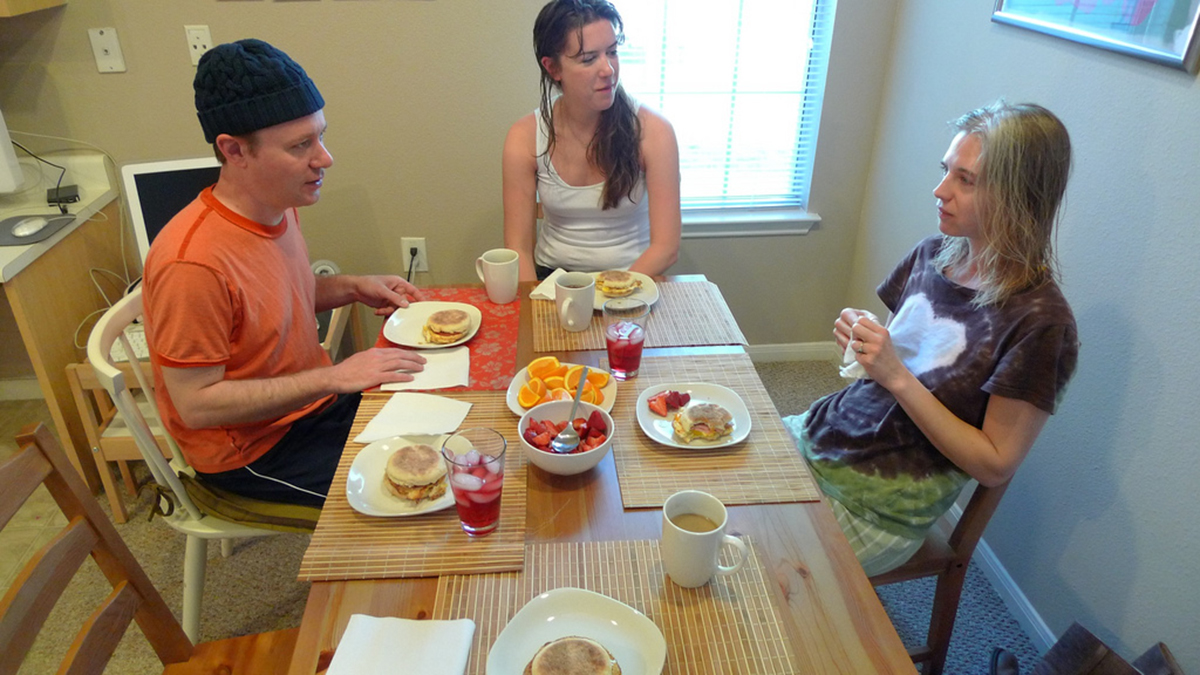Table of Contents
“Breakfast is the most important meal of the day.”
“Eat breakfast like a king, lunch like a prince and dinner like a pauper.”

At some point in learning about diet and nutrition, you’ve probably heard one, or both of these. The idea that breakfast is the most important meal of the day is well known, and makes it into almost every list of weight loss hints, tips and tricks.
But an “idea” is all it is. The theory behind breakfast being the most important meal of the day seems plausible, but when you look into it, there’s no truth behind it whatsoever.
Here’s the theory...
When you sleep, you go for several hours without food
Breakfast provides the body with fuel after an overnight fast. Consuming breakfast helps replenish glucose, which is essential for brain function and muscles. This boost in energy can improve physical performance, especially if you're about to engage in demanding physical activities early in the day.
Eating breakfast has been associated with improved concentration, problem-solving skills, memory recall, and mood. Students who eat breakfast regularly tend to perform better academically.
You wake up, and your metabolic rate has plummeted. (Your metabolic rate is the speed at which you burn calories. If it’s low, that means you might not be burning them as efficiently as you could be, which is bad news where fat loss is concerned.) In order to ramp it back up again, your body needs food, hence where the idea of breakfast “kick starting” your metabolism comes from.
This makes sense at first, until you delve a little deeper.
Studies show that your metabolic rate actually increases during a fast, according to nutritionist Lyle McDonald. In fact, it only starts to drop once you’ve been fasting for 72 hours, so that blows the “ramping up your metabolism” idea out of the water.
When you’re hungry, you’re far more likely to make poor food choices. If you’re feeling a little peckish at lunchtime, and faced with the choice of something like a chicken salad and piece of fruit, or some chocolate from the vending machine and a bag of crisps, you’ll probably opt for the former in an attempt to maintain your progress.
Offer the same two choices to someone who’s feeling ravenous, and even the most dedicated dieter would find it tough to resist the junk food.
That’s about as far as it goes in terms of the advantages of breakfast though. That being said, once you’re accustomed to feeling a bit hungry throughout the morning, you’ll probably be just fine to make healthy, informed and rational choices on your food later in the day.
See Also: Top 4 Worst Breakfast Foods And Their Healthy Alternatives
Not only that, but if you’re really up with your diet, you’ll pre-prepare your food for each day, or decide what you’re eating long before hand, meaning that you’ll eat something diet-friendly no matter what. Anecdotally, those who eat breakfast may make better choices, but anecdotal evidence doesn’t always hold true, or apply to real world situations.
So if that’s it in terms of the advantages of eating breakfast, what about the disadvantages? Could skipping what’s supposedly the most important meal of your day really hold any benefits in terms of health and weight loss, and what’s the best way to change from a breakfast eater to a breakfast skipper?
- “Meal Frequency and Energy Balance”, By Lyle McDonald, November 18, 2008, http://www.bodyrecomposition.com/research-review/meal-frequency-and-energy-balance-research-review.html
- Photo courtesy of Ann Larie Valentine by Flickr : www.flickr.com/photos/sanfranannie/3367727945
- Photo courtesy of Kitty Terwolbeck by Flickr : www.flickr.com/photos/kittysfotos/6362776359


Your thoughts on this